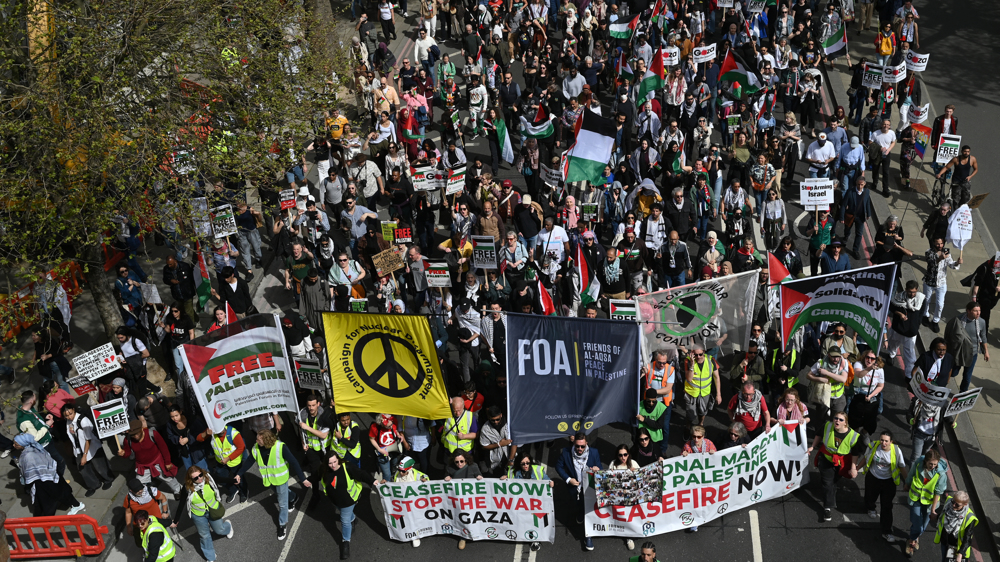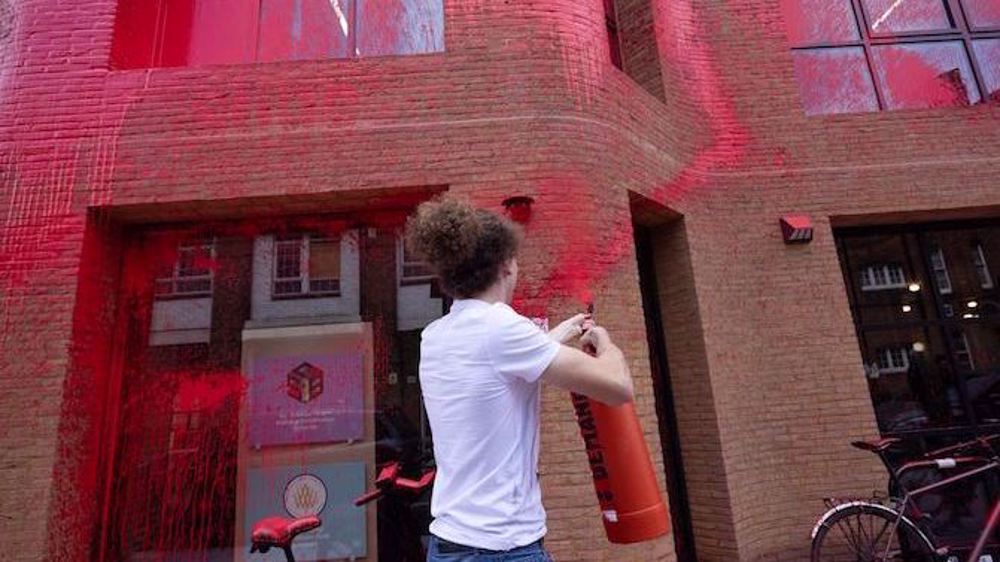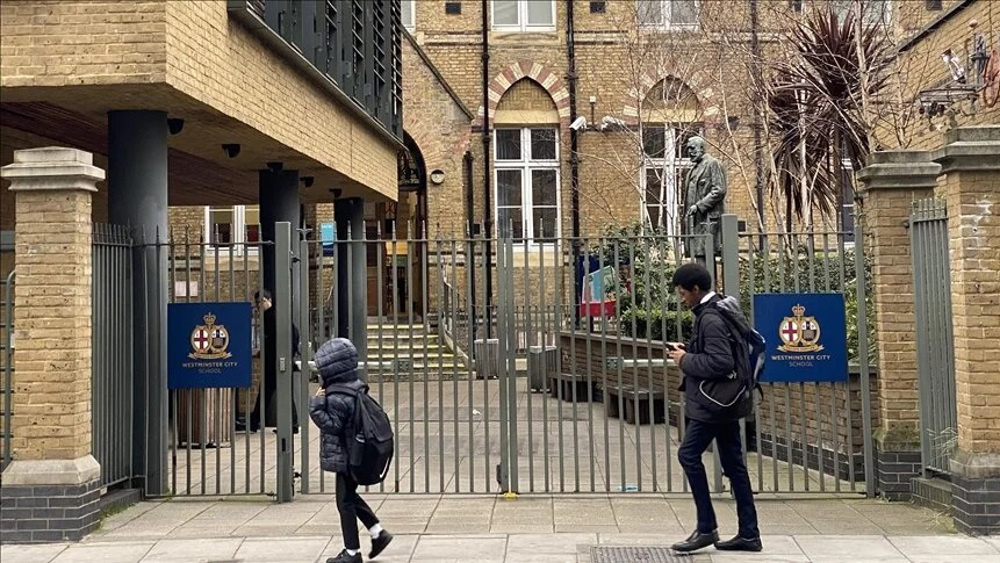Four to face trial over toppled statue of Bristol slave trader Edward Colston
Ahmed Kaballo
Press TV, Bristol
Should statues commemorating men with extremely controversial pasts still stand to record the history or should they be torn down to demonstrate disgust at the crimes that they participated in? This has been the discussion raging in the UK following the toppling of a statue of a 17th-century slave trader by Black Lives Matter protesters in the British city of Bristol last June.
The death of George Floyd in the United States on 25th May in 2020 sparked huge demonstrations in major cities around the world with protesters decrying systematic racism and calling for an end to racial injustice.
The protests that began in solidarity with the African-American community morphed into national dialogues throughout the world, with many protesters calling for their nations to finally come to terms with their own controversial history regarding slavery, white supremacy, and colonialism.
The dramatic images of the 17th-century statue of slave trader Edward Colston being toppled in the city of Bristol really bought the UK's own history to the forefront of the conversations surrounding Black Lives Matter movement.
Edward Colston statue stood here For 125 years until 7 June 2020, when the statue was toppled and pushed into Bristol Harbour by black lives matter protesters.
It was a controversial move that divided opinions not only in the city of Bristol but throughout the UK.
British Home Secretary Priti Patel condemned the move claiming the toppling of Colston's statue was "sheer vandalism" and "completely unacceptable."
Although no arrests were made at the time, eventually four men were charged with criminal damage. The men been dubbed the Colston Four by supporters and appeared in court on 25th January to plead not guilty and are planning to fight their case in the Bristol Crown Court on 8th February.
Following the toppling of Colston's statue, the statue of slave owner Robert Milligan was removed by the local London council, Tower Hamlets. Moreover, Labour councils across England and Wales have promised to review the statutes of all those linked to the slave trade.
For many, none of these things would have happened if it wasn't for the toppling of the Colston's statue, whether the Bristol Crown Court takes that into consideration remains to be seen.
VIDEO | Iran Strikes Back
Israeli occupation of Palestine ‘main cause of instability’ in region: Turkish FM
VIDEO | Columbia students camp on university grounds in support of Palestinians
VIDEO | Muslim unity and Palestine
UN Security Council's inaction prompted Iran to attack Israel: FM
Know their names: Palestinian athletes, scouts, coaches killed by Israel in Gaza
'It was not a strike': Iran FM dismisses Israeli weapons as 'children toys'
The struggles of Occupied Palestine









 This makes it easy to access the Press TV website
This makes it easy to access the Press TV website